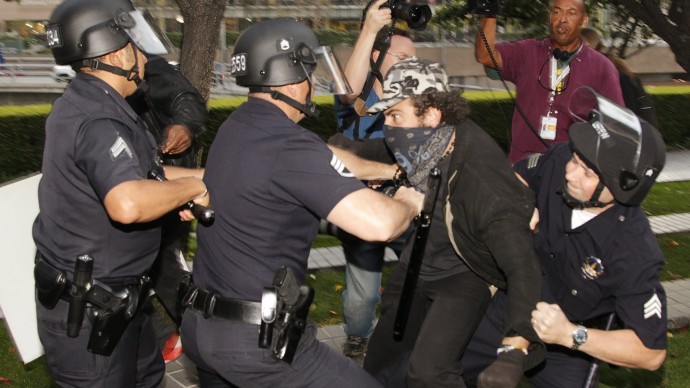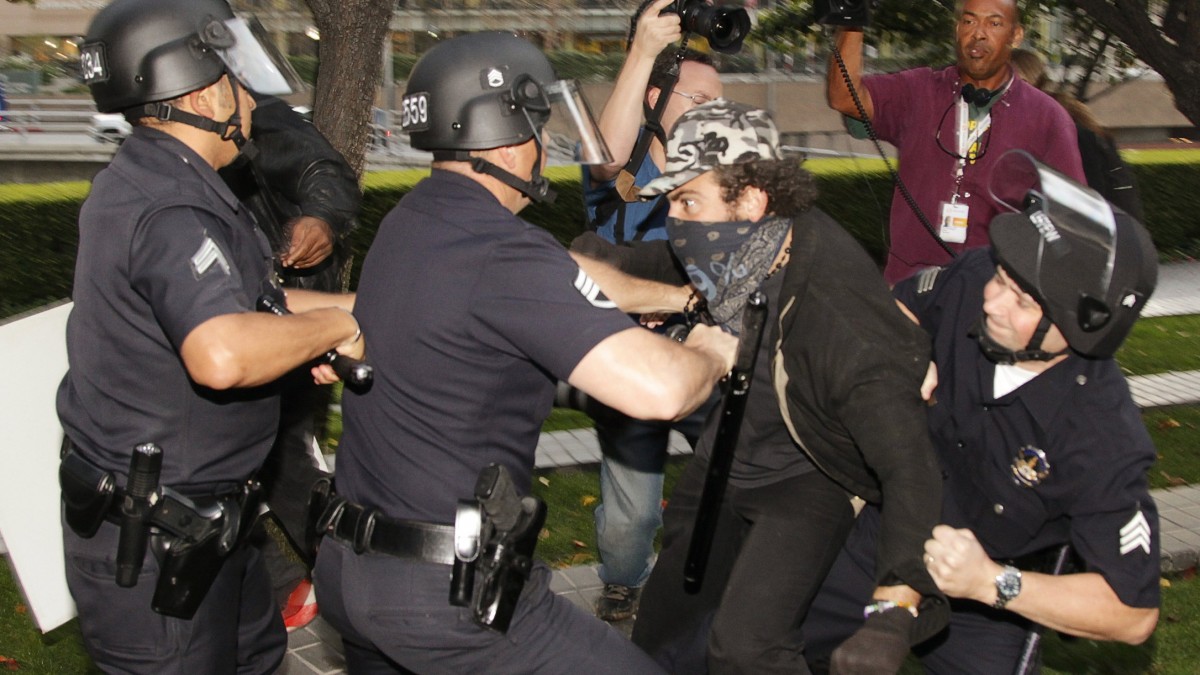
“Torture and physical coercion was a routed and accepted occurrence under the command and supervision of Jon Burge and John Byrne. The cases of every alleged victim must be re-examined with fresh eyes in light of Burge’s conviction and this mountain of evidence.” — Class action petition filed against the state of Illinois by representatives Johnni Plummer and Vincent Wade
(NEW YORK) MintPress – As a result of the above lawsuit, filed earlier this month, 100 alleged victims of abuse at the hands of notorious Chicago cops Burge and Byrne and/or those working under them have now been granted hearings to describe the torture they faced.
The class claims that for four decades, Burge, Byrne and their subordinates in the Chicago Police Department (CPD) “systematically tortured confessions from African-American men whom they arrested on the south and west sides of Chicago,” which are predominantly black.
Each man was “subjected to racially motivated physical abuse – including electric shock, mock execution, suffocation with a plastic bag and beating – that caused him to inculpate himself involuntarily in a crime,” according to the complaint.
Plummer says Burge’s men forced him to confess to murder when he was 15 years old by threatening him, beating him with a flashlight and pulling his hair.
Wade claims he was forced to confess to murder, home invasion and armed robbery “after one or more of the interrogating officers smacked him on the nose with a flashlight, kneed him in the groin, punched him in the eye and beat him on his chest with a baton and phonebook while his arms and legs were pinned down.”
Both men have been in prison — Plummer for the past 21 years, and Wade for 28 years — without a full and fair hearing into their claims, according to the complaint.
“It’s not fair,” said Plummer’s mother, Jeanette Plummer, at a news conference announcing the suit. “Twenty-one years is wasted. My son needs to come home. So do the other men.”
Fresh evidence
The class claims that unlike past cases involving corrupt law enforcement officers, “This petition merely seeks the establishment of a procedure to assure that every one of the still-incarcerated persons who has a credible claim that Burge, Byrne, or their men physically coerced him into confessing to the crime for which he was convicted is provided with a full and fair hearing into that allegation.”
Although during class members’ suppression hearings, the courts discredited the now-incarcerated victims’ testimonies, “Given all that has come out over the course of the past 23 years regarding Burge and his practices, the detectives’ denials can longer be presumed to be honest,” the petition states.
“There is a mountain of new evidence – culminating in Burge’s federal court conviction – showing that torture and physical coercion was a routine and accepted occurrence under the command and supervision of Jon Burge and John Byrne. The cases of every alleged victim must be re-examined with fresh eyes in light of Burge’s conviction and this mountain of evidence.”
Burge behind bars
Burge, 65, is already serving time in federal prison, after being sentenced to four and a half years on Jan. 21, 2011. Some of his alleged victims have expressed outrage that the sentence wasn’t harsh enough.
The federal probation office had recommended a 15- to 21-month sentence, while prosecutors had requested as much as 30 years.
Burge, a native of Chicago, is an Army veteran who served tours in South Korea and Vietnam before continuing as an enlisted Reserve soldier in the military police.
In March 1970, at age 22, he returned home and began his career as a police officer on the South Side. In May 1972, he was promoted to detective. That is the same year that allegations of torture on the part of Burge and those under his command began.
The most controversial arrests were made in February 1982, in the midst of a series of shootings of Chicago law enforcement officials in an area commanded by Burge’s squad. Some of the people who confessed to murder were later granted new trials and a few were acquitted or pardoned.
In 1989, Burge was acquitted of police brutality charges after a trial resulted in a hung jury. But he was suspended from the CPD in 1991 and fired in 1993 after the Police Department Review Board ruled that he had used torture.
After a public outcry to investigate the charges, a special prosecutor began doing so in 2002. Although the review revealed improprieties, no action against Burge was taken because of the statute of limitations. Instead, several convictions were reversed, remanded or overturned, and all Illinois death-row inmates received reduced sentences.
Four of Burge’s victims were pardoned by then-Gov. George Ryan and later filed a consolidated suit in the U.S. District Court for the Northern District of Illinois against the City of Chicago, various police officers and State’s Attorneys and Cook County.
In December 2007, a $19.8 million settlement was reached with the “city defendants.” Cases against Cook County and the other county prosecutors continued until July 2008. In October 2008, special prosecutor Patrick Fitzgerald had Burge arrested on charges of obstruction of justice and perjury in relation to a civil suit regarding the allegations against him.
The trial was postponed four times until May 24, 2010. Burge was convicted on June 28, 2010 of lying under oath by testifying in a lawsuit that he’d never witnessed or participated in the torture of suspects.
He is serving his sentence at the Federal Correctional Institution Butner Low near Butner, N.C. His projected release date is Feb. 14, 2015.
Crime and punishment
Among Burge’s methods of torture: burning victims with cigarettes and radiators, using a cattle prod on inmates, electrocuting men in their genitals and using violet wands, hair dryers and stun guns to further harm men’s genital regions. He has also been accused of supervising the electrical shocking of a 13-year-old boy.
“Unless the Illinois criminal justice system affords this necessary relief to this class of men, Burge’s legacy will never be eradicated,” the complaint states. “This petition affords this court the opportunity to do what justice requires.”
It was the class’s last resort, according to the petitioners, as state funding for the Illinois Torture Inquiry and Relief Commission was cut off in June as a result of budget cuts.
The class is being represented by the legal director of the Roderick MacArthur Justice Center of Northwestern University, Locke Bowman and the People’s Law Office .
The total number of torture victims is still unknown, Bowman said. “It’s fair to say there may well be scores,” he said. “It is time — it is past time — for there to be closure in the Burge scandal.”
A hearing has been set for Monday, Oct. 29.


